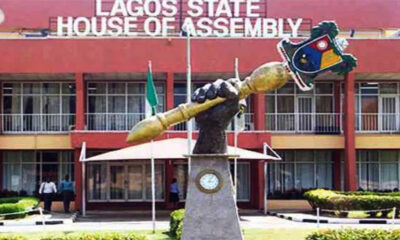News
My monthly salary was below N400,000 as speaker – Dogara
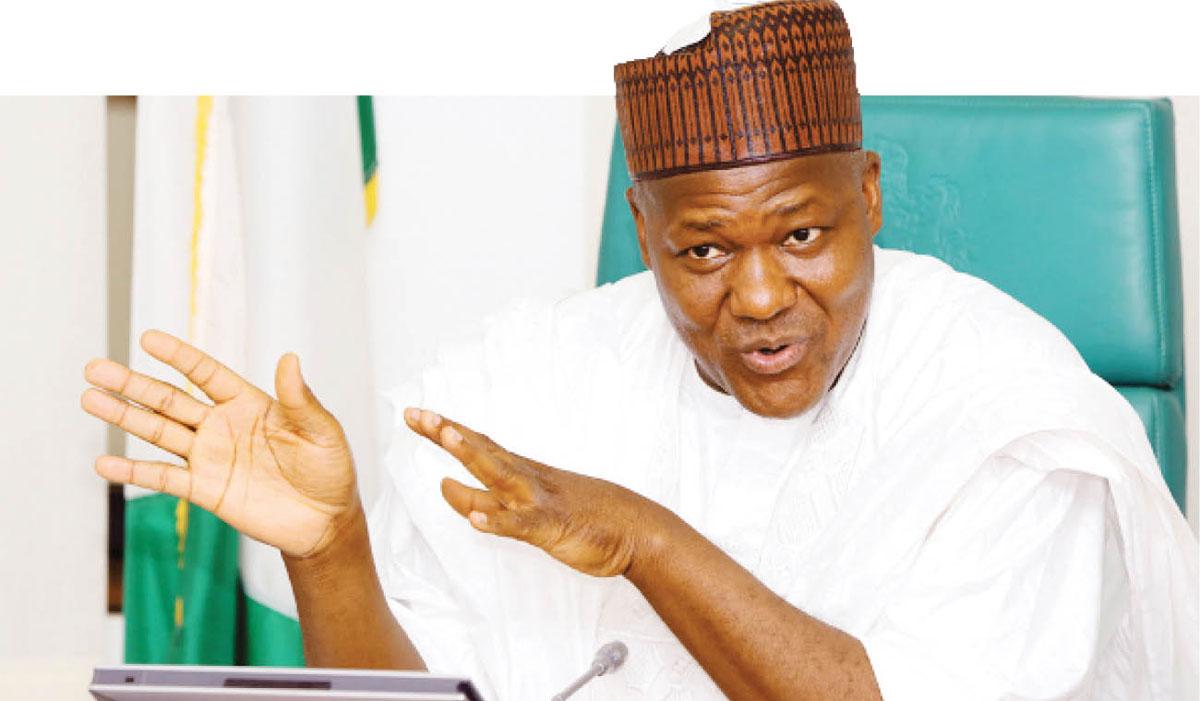
My monthly salary was below N400,000 as speaker – Dogara
Former Speaker of the House of Representatives, Yakubu Dogara, recently shed light on the often misunderstood topic of legislative salaries and allowances in Nigeria.
Addressing attendees at the Legislative Open Week in Abuja, Dogara revealed that during his tenure from 2015 to 2019, his monthly salary as Speaker was below N400,000. This revelation comes amidst widespread perceptions that federal lawmakers earn extravagant sums.
“Many Nigerians believe that legislators earn humongous salaries and allowances,” Dogara remarked, countering this assumption by disclosing his own earnings. “My salary wasn’t even up to N400,000 monthly,” he clarified.
The former Speaker went further to discuss the allowances allocated to him during his tenure, noting that despite a reported N25 million monthly allocation, none of this money ever made its way into his personal accounts. “I didn’t take a single Naira home,” he emphasized, highlighting the stringent accountability and public expectations placed upon lawmakers.
READ ALSO:
- Lightning strike kills 2 footballers in Delta
- Protesting youths set INEC office ablaze in Benue
- Man sent to prison over killing of 71-year-old farmer in Ondo
Dogara’s transparency echoes previous statements made by Senator Shehu Sani in 2018, where he disclosed that senators received N13.5 million monthly as running costs, with a base salary of approximately N750,000 per month.
These insights into legislative finances provide a nuanced view of the financial responsibilities and public scrutiny faced by lawmakers in Nigeria. Dogara’s testimony underscores the challenges of managing public funds and meeting constituent expectations, dispelling myths surrounding legislative compensation.
The Legislative Open Week serves as a platform for fostering transparency and understanding between lawmakers and the public, ensuring accountability and effective governance.
In conclusion, Dogara’s candid revelations challenge public perceptions and encourage a deeper understanding of the complexities involved in legislative compensation and governance in Nigeria.
His remarks pave the way for informed discussions on legislative reform and financial accountability in public service.
My monthly salary was below N400,000 as speaker – Dogara
News
Investigation of wanted businesswoman Achimugu not linked with Atiku, Sanwo-Olu – EFCC
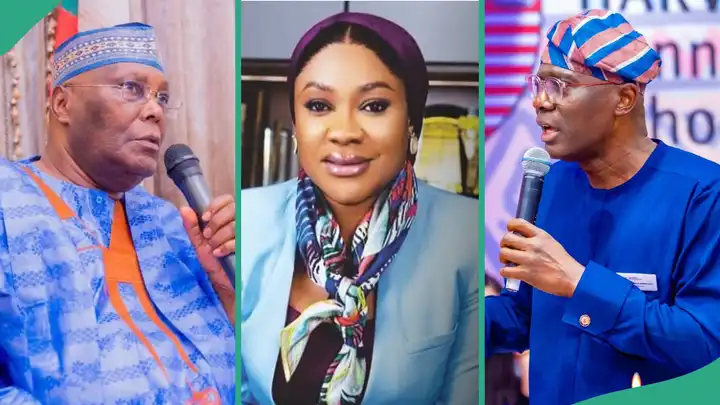
Investigation of wanted businesswoman Achimugu not linked with Atiku, Sanwo-Olu – EFCC
The Economic and Financial Crimes Commission has reacted to media reports linking its investigations of Ms. Aisha Achimugu with political undercurrents involving former Vice President Atiku Abubakar and Lagos State Governor, Babajide Sanwo-Olu
This is contained in a statement by the commission on Friday night.
The statement read, “We wish to state unequivocally that the investigations of Achimugu have no correlation of any kind with the two political actors. She is being investigated for alleged criminal conspiracy and money laundering and has since been declared Wanted by the Commission”.
The EFCC started investigating Achimugu in 2022. Although she approached the court to obtain an injunction restraining the Commission from arresting, investigating, inviting or detaining her for any alleged criminal act, the injunction was challenged and vacated on Wednesday, February 19, 2025 by a Federal High Court sitting in Abuja.
The court ruled that “…no court has the power to stop the investigative powers of the Police or EFCC or any agency established under our laws to investigate crimes when there is reasonable suspicion of commission of a crime or ample evidence of commission of an offence by a suspect.”
“The court further upheld the interim order of forfeiture of assets of Achimugu suspected to be proceeds of crime, dismissing her suit against it as lacking merit .
“The foregoing clearly establishes that the EFCC’s case against her has no immediate or remote nexus with any politician or any veiled or open reference to any political engagement or transaction.
“The EFCC is non-partisan and non-sectarian. We enjoin the public to continue to keep faith with the professionalism of the Commission without imputing any extraneous consideration to its works.”
News
Why governors’ forum is silent on Rivers emergency, by DG
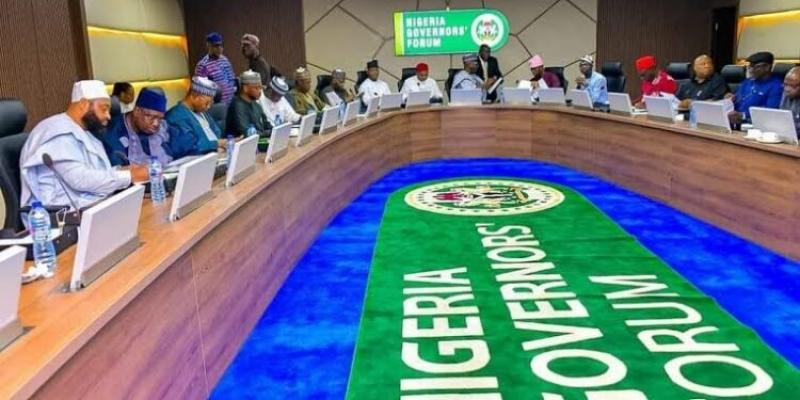
Why governors’ forum is silent on Rivers emergency, by DG
The Nigeria Governors’ Forum (NGF) yesterday attributed its neutral position on the recent declaration of a state of emergency in Rivers State to the need to steer clear of taking positions that may alienate members with varying political interests.
Taking positions on contentious partisan issues, the NGF said, would not augur well for it, especially in view of its past experience in fundamental division.
Notwithstanding, the declaration of the state of emergency by President Bola Tinubu yesterday generated more kudos and knocks from across the country.
Special Adviser to the President on Senate Matters, Senator Basheer Lado, said the action of the president was meant to ensure protection of lives and restoration of law and order in the state, while the President’s Special Adviser on Media and Public Communications, Sunday Dare, said his principal was required to “avert needless harm and destruction .”
National Publicity Secretary of the ruling All Progressives Congress (APC), Felix Morka, said Tinubu, by his action, cleared what had manifested as a constitutional crisis in Rivers state.
But former President Goodluck Jonathan saw it from a different perspective.
READ ALSO:
- Senate didn’t get 2\3 majority for Tinubu emergency rule in Rivers –Tambuwal
- FG destroys another 200 containers of expired drugs
- Rivers court bars woman from answering ex-husband’s name
He described “abuse of office and power by the three arms of government in the country“ as a dent on Nigeria’s image.
The NGF, in a statement by its Director General Abdulateef Shittu, said it is essentially “an umbrella body for sub-national governments to promote unified policy positions and collaborate with relevant stakeholders in pursuit of sustainable socio-economic growth and the well-being of the people.”
It added: “As a technical and policy hub comprising governors elected on different platforms, the body elects to steer clear of taking positions that may alienate members with varying political interests.
“In whatever language it is written, taking positions on contentious partisan issues would mean a poor sense of history — just a few years after the forum survived a fundamental division following political differences among its members.
“Regardless, the Forum is reputed for its bold positions on governance and general policy matters of profound consequences, such as wages, taxes, education and universal healthcare, among others.”
It asked for “the understanding of the public and the media, confident that appropriate platforms and crisis management mechanisms would take care of any such issues.”
Why governors’ forum is silent on Rivers emergency, by DG
News
Rivers: Tinubu acted to save state, economy, says Karimi
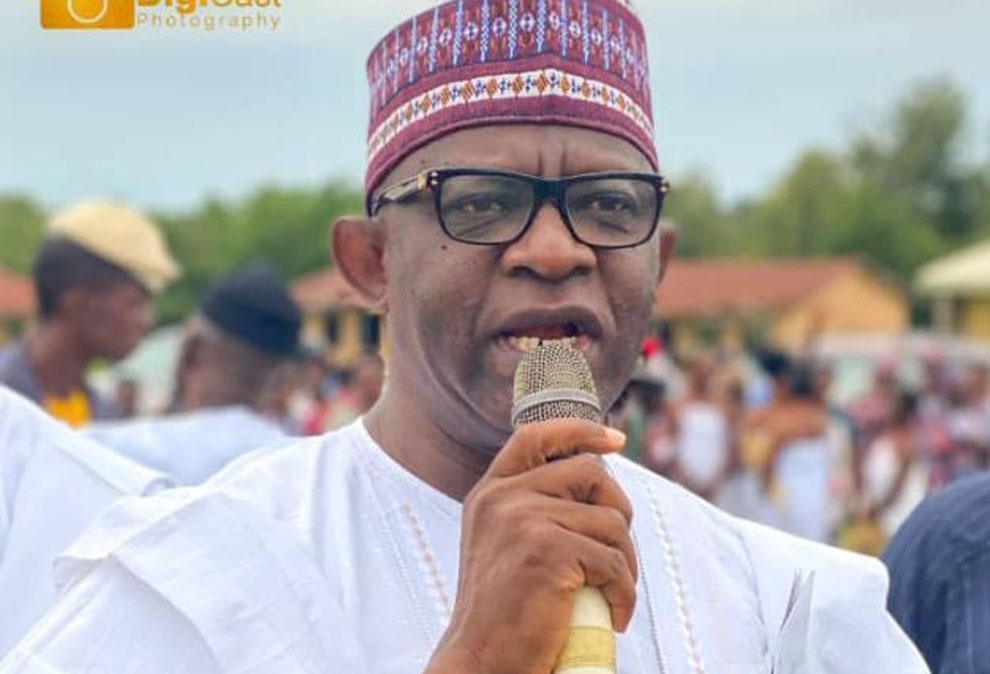
Rivers: Tinubu acted to save state, economy, says Karimi
Chairman of the Senate Services Sunday Karimi has hailed President Bola Tinubu for the decision to declare a state of emergency in Rivers State.
He told reporters on Friday in Abuja that the President acted in the best interest of the State and Nigeria, having taken his decision in compliance with the Constitution.
“No President or government worth a name, will fold its arms and watch a political situation deteriorate to what we saw unfolding in Rivers State.
“We saw that bombing of pipelines had begun, and the security situation was getting worse with the tension everywhere”, Karimi stated.
Karimi, who represents Kogi-West on the ticket of the All Progressives Congress (APC), recalled the “fatherly role” Tinubu had played in the crisis since 2023 in a bid to get the Minister of the Federal Capital Territory (FCT), Nyesom Wike, and suspended Governor Siminalayi Fubara to reach an understanding, to no avail.
He explained: “We were all here in 2023 when Mr President called that truce meeting at the Aso Rock Villa. There was the eight-point agenda for settlement reached between the factions.
“When Nigerians expected that progress should be made to achieve peace, things started deteriorating considerably to a point where the governor demolished the House of Assembly building and administered the state with only three legislators.”
READ ALSO:
- Oluwo accuses Ooni of plotting to dethrone him
- Natasha: Court blocks recall attempt, stops INEC
- US ends legal status for 500,000 immigrants
Karimi observed that with the recent judgment of the Supreme Court, which gave the upper hand to the 27 lawmakers loyal to the camp of the FCT Minister, matters merely got worse in the State as the lawmakers were set to impeach the Governor.
“What did you expect would be the implications? There would have been more destruction, killings and economic losses for the country.
“With the bombings that had already started, it was a matter of time before the whole state would be engulfed in flames. No responsible President would sit, arms folded, and allow that to happen “ he added.
The senator further argued that it took “painstaking efforts” by the administration to raise daily crude oil production to around 1,800 barrels, noting that Nigeria’s economy was already “witnessing a rebound under the renewed hope projects of the government.”
“Allowing the situation in Rivers to get worse before he would act, wouldn’t have helped the state or Nigeria as a country in any way.
“Mr. President intervened at the right time, and his actions are covered by law,” he said.
Karimi also spoke on the emergency declaration in Borno, Yobe, Adamawa and a couple of other states by former President Goodluck Jonathan without removing the Governors from office or suspending the state assemblies.
According to him, the case with those States was not generated by political crises but rather security concerns.
“So, I will advise those comparing the two scenarios to remember that one was purely about security threats resulting from the insurgency caused by Boko Haram, while that of Rivers is clearly political.
“It was the proper thing to do to suspend the political actors in the two factions to allow for tensions to diffuse. Nigerians should appreciate the President for the action he has taken so far,” he stated.
Sen. Karimi also noted that there was no cause for alarm as the National Assembly had indicated that the emergency rule could be reviewed as soon as there were signs that things could quickly normalise in Rivers State.
Rivers: Tinubu acted to save state, economy, says Karimi
-

 Uncategorized7 hours ago
Uncategorized7 hours agoBreaking: Moon sighted in Saudi, UAE, others, Eid-Fitr holds Sunday
-

 metro3 days ago
metro3 days agoRivers administrator Ibas fires Fubara’s political appointees
-

 metro2 days ago
metro2 days agoJUST-IN: Ex-Oyo gov Ajimobi’s first child Bisola dies At 42
-

 metro2 days ago
metro2 days agoFG declares public holidays for Eid-el-Fitr
-
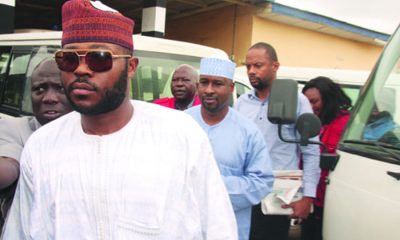
 metro2 days ago
metro2 days agoEFCC re-arraigns son of ex-PDP chairman for alleged N2.2bn oil subsidy fraud
-

 Africa3 days ago
Africa3 days agoNiger coup leader sworn in as president for five years
-
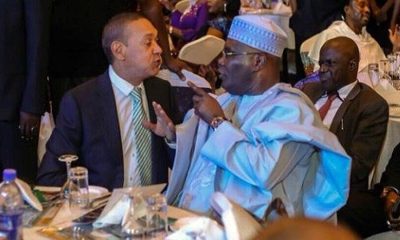
 metro3 days ago
metro3 days agoNatasha: Murray-Bruce slams Atiku, defends Akpabio
-
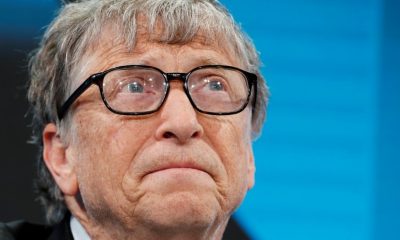
 International3 days ago
International3 days agoAI will replace doctors, teachers, others in 10 years – Bill Gates









